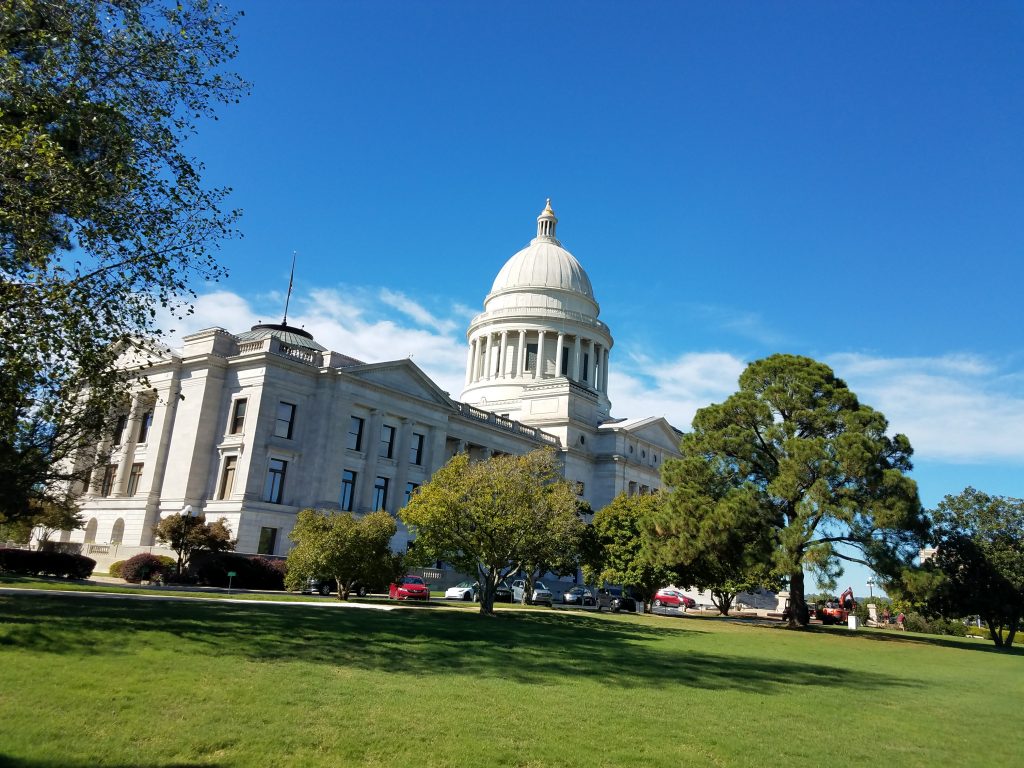Why a Texas-Style Pro-Life Law Might Not Have the Same Effect in Arkansas

The U.S. Supreme Court’s Decision to Allow a Pre-Enforcement Challenge Against the Texas Heartbeat Law Means Courts Might Not Enforce It In Arkansas
The U.S. Supreme Court’s recent handling of Texas’ pro-life “heartbeat” law calls into question whether or not a similar pro-life law would be enforceable in Arkansas.
Last year Texas passed a law generally prohibiting abortion after an unborn baby’s heartbeat is detected. Instead of creating criminal penalties for abortion, Texas’ law lets anyone file a lawsuit against a person who violates the state’s heartbeat law. If an abortionist breaks the law, a person could sue the abortionist for $10,000. Since September, the law has generally stopped abortion in Texas. That is part of the reason why last December several Arkansas lawmakers unsuccessfully attempted to pass a Texas-style pro-life measure during a special session of the General Assembly.
The day after the General Assembly went home from that special session, the U.S. Supreme Court ruled that the Texas pro-life law could remain in effect in Texas, but left the door open for other legal challenges against the law. Because of that ruling, many people—my staff and I included—at first thought that meant a Texas-style pro-life law could stop abortion if passed in Arkansas. But now we’re beginning to see that courts might not enforce the law in Arkansas the way they have in Texas. Here’s why not.
When the U.S. Supreme Court let the Texas law stand, the court also allowed a type of lawsuit called a pre-enforcement challenge to continue against the Texas law. Pre-enforcement challenges are a way for people to challenge a law in court even if the law isn’t being enforced against them. It’s one of the ways the ACLU and Planned Parenthood challenge Arkansas’ pro-life laws in federal court—often even before a law officially takes effect. Because of the U.S. Supreme Court’s handling of the Texas law, if Arkansas passed a similar pro-life law today, the ACLU and Planned Parenthood could file a pre-enforcement legal challenge against the law before it could take effect. The lawsuit probably would go to U.S. District Judge Kristine Baker in Little Rock. Because of this, Judge Baker would be free to consider the pre-enforcement challenge and block the law in Arkansas. The Eighth Circuit might eventually unblock the law, but that appeal process would take Arkansas’ attorney general several months or longer.
Most legal experts I have spoken with believe the courts will eventually strike down the Texas law, not based on its effect on abortion, but based on its enforcement mechanism that gives anyone in America standing to sue any Texan who performs or is involved in the performance of an abortion.
So does that mean Arkansas shouldn’t pass a Texas-style pro-life law? Not necessarily.
It just means Arkansas isn’t guaranteed the same outcome as Texas.
Federal courts in Texas are letting the state enforce the heartbeat law right now, but federal courts in Arkansas might not.
In June, the U.S. Supreme Court is scheduled to issue its abortion decision in the Dobbs case from Mississippi. Many legal experts I have spoken with believe the court may overturn Roe v. Wade. If that happens, a Texas-type abortion bill won’t be necessary in Arkansas. Each state would be able to make its own abortion laws. Sen. Jason Rapert and Rep. Mary Bentley, in 2021, passed a ban on abortions in Arkansas except to save the life of the mother. If Roe v. Wade is reversed, almost all abortions will be illegal in Arkansas under that law.





